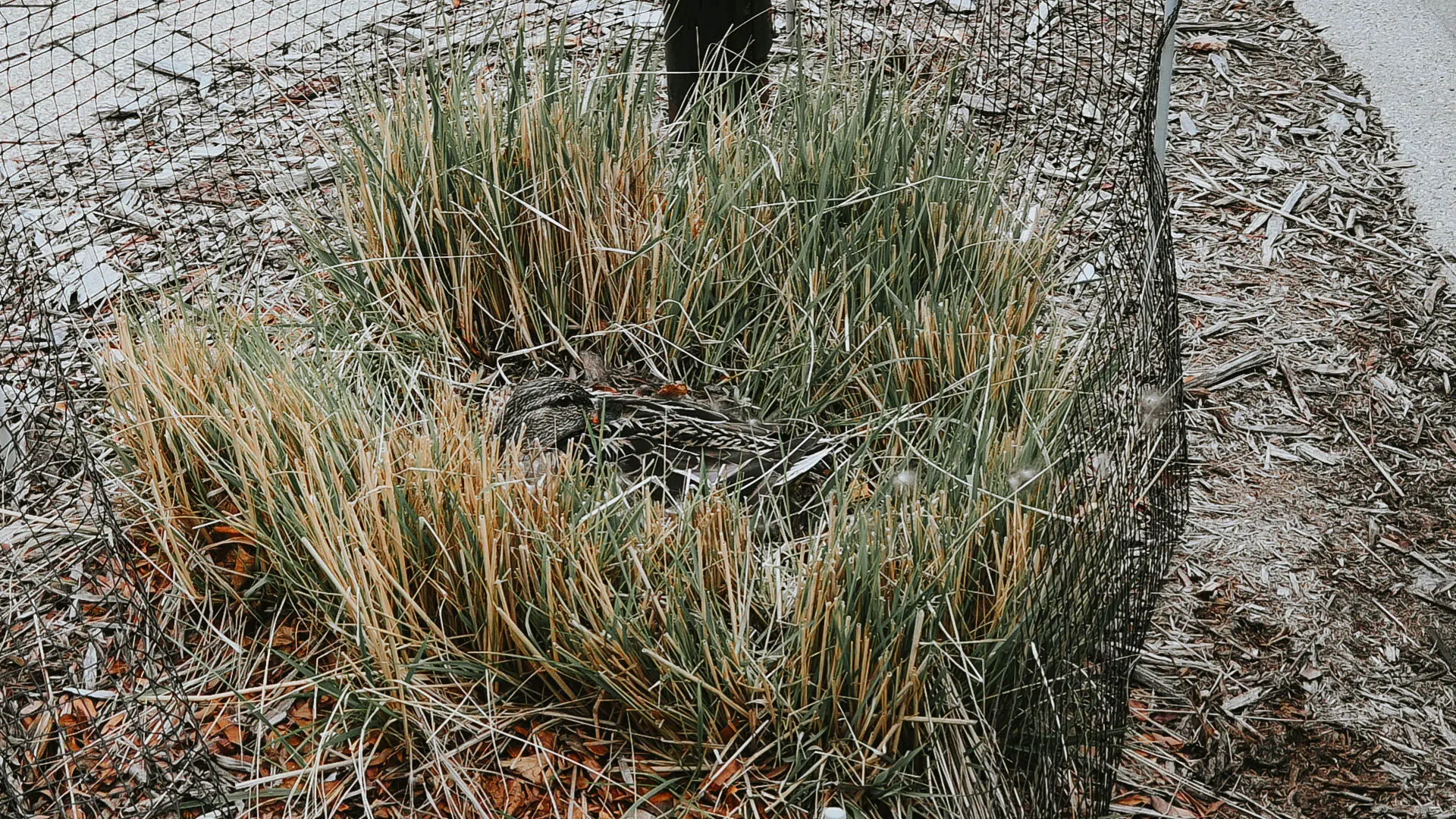GREEN BAY, WI (WTAQ) – The spring season returns with tons of wildlife across northeast Wisconsin, including baby animals that are on the way.
Mallard ducks are among the wildlife setting up their nests for the spring. But sometimes those nests end up in odd places, like a downtown Green Bay parking lot.
“This particular duck in downtown Green Bay has been nesting in that area for over 4 or 5 years,” said Joe Loehlein with the Green Bay Duck Hunters Association. “I’ve had some on roofs, I’ve had some in planters, I’ve had some in pots, but most of them are usually up against the house or in the backyard or in a bush.”
Loehlein says ducks typically return to the same area for nesting each year, and has seen the same ones near the Nicolet Bank building – just a few steps away from where the nest is now.
But why are the ducks setting up shop in such a busy area? Bay Beach Wildlife Reserve Animal Curator Lori Bankson says it’s likely they didn’t know how well-trafficked the spot really is.
“Waterfowl look for places to nest that maybe aren’t high traffic at the time that they’re checking it out. They might find a place that has some warmth, like up against the building or blocked from the wind,” Bankson explained. “Something [like woodchips] that they can dig a little bit down into, that they could cover up to protect from predators, but not realizing that the places that they pick actually are spots that down the line may become busy with public.”
The female mallards will sit tight once the eggs start arriving, and will likely incubate the entire nest over the course of about 28 days. If you spot a nest, mark it down on a calendar and reach out to the wildlife reserve.
“That’s going to help us all really see how long is this female has. We want to keep those eggs with that female, so they develop as much as possible,” Bankson told WTAQ News.
But what else should people – and shouldn’t people do when coming across a nesting duck?
“It’s great to watch wildlife. It’s great to see this happening. But we don’t want to disturb her, because we’re still seen as predators…If we disturb them, she may decide that it’s too much [and] she doesn’t want to risk herself being disturbed by a predator, and then that nest may fail and those eggs may not develop all the way,” Bankson explained. “Protect that nest as much as possible, but allow mom the chance to move on and off so she can get some food when it’s quiet out and come back to the nest easily.”
“We put a little fence around the area where their nest is. The mother can get in and out over the top, but when the babies that they can’t get through it. We show up there and catch the mother and the babies and get them to safe water…”The mother dries them off and leaves the nest immediately, heading for water and food. They’ll get stuck in sewers or get eaten by crows or raccoons, and that what we’re trying to stop,” Loehlein said. “Just leave them alone, let us know about it. We’ll end up monitoring the nest and catch the babies and the mother when they’re ready to leave.”
Loehlein also pointed out that it’s important not to feed them, as food and water could attract predators that might destroy the nest.
If spot ducklings crossing the road, stay in your car and call Bay Beach Wildlife Reserve for help. If you notice something odd about a nest or ducklings without a mother, call the Bay Beach Wildlife Animal Care Department at (920) 391-3685.
For more information on the Green Bay Ducks Hunters Association or to report a mallard nest to them, call Joe at 920-621-8950.





